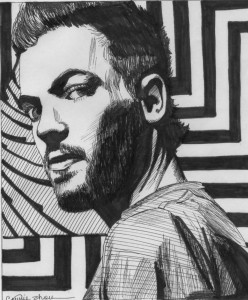Staff Writer
Heavy metal, violent gangster rap, and now, newly added to the list of genres that will make your parents proclaim “MY god, what ARE you listening to?,” Dubstep.
Using its heavy bass lines as a weapon-of-choice, Dubstep is sure to make a large impact on the U.S. music scene in months to come.
Dubstep is a subgenre sprouting from house music originating in the U.K, and has received quite a reception over the past few months in the U.S.
The sound of Dubstep is often described by its fans as filthy, disgusting, repulsive and heavy. All of these normally negative adjectives take on a positive connotation when put into the context of Dubstep.
The aspect of Dubstep, whose filthiness and grit is the most crucial, is the bass. Dubstep producers like to pride themselves on creating bass sounds that would make most small children cry out of terror.
Using an array of filters, Dubstep producers modulate the sound of a bass to emulate a certain quality that has been referred to as “wobble.” This is easily the most indicative feature of Dubstep.
In the U.K., you can’t turn on a radio station without having your eardrums infiltrated by this unique brand of audio assault.
Within the next coming months, I’m positive the same will able to be claimed for America.
The man responsible for this Dubstep invasion, the national ambassador for all things filthy and Dubstep would have to be Rusko.
“I am Rusko and I make heavy, dirty, wobbly, party-time Dubstep,” said the man himself in a May 2010 interview with the U.K. Guardian.
There are few statements more valid than this.
Rusko has been touring frantically, playing back to back shows and festivals, and spreading the good word of Dubstep like it was his god given duty.
All of this was done while managing to be the only man in human history to rock a Jew-fro Mohawk successfully.
Several Staples students, including me — the strapping young reporter that I am —shipped out to Electric Zoo.
This two day music festival on Randall’s Island had headliners that included Rusko, Bassnectar and some of Dubstep’s other rising stars.
“What I love about Dubstep is probably the diversity in the music, compared to the rest of modern music, and the people in that specific scene; they’re all really unique and fun to be around. Also that bass that rocks my sternum. Mmmm,” said Staples Dubstep aficionado John Demetres. “But as far as Dubstep becoming mainstream, I can see it becoming a fad, but the only reason that people would actually like it, is because their friends do.”
The reason why I find Dubstep so appealing is that it takes everything I hated about the generic house/trance music that has been churned out for the past couple of years, decapitates it, and laughs at the remains.
There’s no sparkly, chorus-laden synths that make you feel like you’re watching a Club Med commercial or cheesy vocal breaks with lyrics that depicts what “every time we touch” feels like.
Just pure unbridled, bass-soaked, gritty rompin’ stompin’ dance music.
Will Dubstep become the next “it” genre? Will Rusko be the next Justin Bieber? Will Justin Bieber start making Dubstep, and then in turn become the next Rusko?
Will I be telling my grandchildren that bass doesn’t wobble like it used to?
To be perfectly frank, I don’t have an answer to any of these questions, but what I can say beyond a shadow of a doubt is that Dubstep is a furious and frenzying force in the musical stratosphere.
It will not cease until it has done what it has come to do, and Dubstep has come for one purpose only — to make you dance.















































Well done • Nov 11, 2010 at 7:25 pm
I like this.